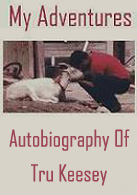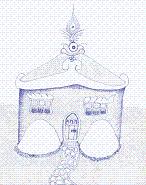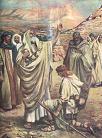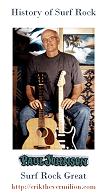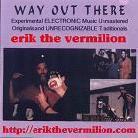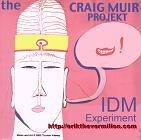Be Kind! Share with your Team, with your Family, with your Buddies!
Click The Button Now & Like This On Your Facebook Page!
Saturday, October 01, 2011
Unsuitable As It May Seem, The Special Broadcasting Service's Home In Light-Industrial Artarmon Is A Fitting Place For A Network Attempting To Address An Identity Crisis And The Media Revolution On Scant Resources.
When SBS TV started on October 24, 1980 - United States Day - it started with a documentary, Who Are We? It had been a nod to the reason behind SBS's being : to reinforce the social policy of multiculturalism.
Thirty years on, a broadcaster that commenced with commercial-free radio and TV designed to showcase Australia's cultural variety now receives a 3rd of its revenue from advertising. To many it's better known as the station that brought Top Gear down under, and the home of soccer and the Tour de France.
During the government's review of public broadcasting two years back, one spectator bitched that SBS had modified from ''a very special broadcaster of the past, into a de facto commercial lookalike''. In essence, he asked : who are you, SBS?
Chris Berg, a research fellow with the Institute of Public Affairs, goes further : why are you continuing to here? He is saying SBS has slid into ''almost complete irrelevance''. ''It really cannot hope to cater for the sheer diversity of migrant communities in Australia in 2011, and those communities have access to home content thru online and satellite services,' ' he is saying.
''The writing has been on the wall for SBS for years, but it lumbers on usually because state programs are extremely hard to shut down.' '
The governing body professes strong support, but that isn't paired with strong funding. In the last funding round, SBS won $20 million extra, but the ABC got $180 million, while the profitable commercial networks were relieved of $250 million in licence costs. SBS runs two Television channels and four radio stations on a quarter of Channel Seven's revenue and less than a third of the ABC's.
The web has brought a deeper challenge, undercutting the reason behind its existence. People can now hear, see and read their own languages and cultures online when they desire from their homelands.
But SBS's new CEO, Michael Ebeid, believes it is needed now more and more.
Ebeid, 45, personifies the broadcaster's inclusiveness. Born in Egypt, schooled at Epping Boys High and a former head of marketing at the ABC, Ebeid lives in East Sydney with his partner, Roland, a Qantas pilot.
3 months into the job, he has settled into his pitch. ''Today, we have got double the number of people who speak another language than 35 years back when SBS was set up,' ' he is saying. ''So I might disagree that cultural difficulty [means] SBS is needed and is more important today than ever.' '
Cultural enclaves may develop if migrants get all their reports from home. ''It means they are not getting stories and current affairs from an Australian point of view and, more importantly, stories and current affairs about Australia,' ' he is saying. ''I think that is a real worry for our society.' ' SBS can help by reporting Australian issues in migrants ' languages.
As for the trickier question of the SBS identity, he wants to take it back to charter basics : less Top Gear and more Return To Where You Came From, which took 6 Australians distrustful about asylum hunters to Iraq and the Democratic Republic of the Congo. At the time it aired it was SBS's preferred program of the year - 524,000 spectators on the first night. The other networks regularly do double that. Its prime-time chunk of the nationwide audience has been about 6 % for the last 6 years.
But its point is to be niche, and Ebeid welcomes it. ''We are returning to being a rather more particular organisation,' ' he is saying. A ''large majority' ' of programs will focus on a charter that needs ''multilingual and multicultural' ' programs which ''inform, educate and entertain all Australians and, in doing therefore reflect Australia's multicultural society''.
His main worry is whether he is able to afford to get there.
The responsible minister, Senator Stephen Conroy, asserts SBS is ''one of Australia's most important cultural institutions' ' - but there is no doubt SBS is wrestling.
This week although it announced a reality show, Bollywood Star, it also canned its only forthcoming local drama. Dusty was to be a series based on a detective in Darwin, in the tradition of recent offerings East West 101 and The Circuit.
But it just does not have the money for pricey Australian drama. ''We don't have anything on our commissioning slate for major drama and I suspect that sure is a real shame.' '
The extra $20 million Conroy won for SBS is, in TV terms, peanuts, especially as it has to battle with other broadcasters scrambling to fill their digital channels.
Greens Senator Scott Ludlam claims : ''They are getting hit from a selection of fronts, and we think the most significant priority for the station is a serious increase in public funding.' '
Its three-year deal will be unveiled in the following budget, and Ludlam says the Greens will make ''a gigantic deal' ' about its future.
Of its $207 million revenue in 2009-10, two-thirds came from the government. Its percentage in the pay TV channels World Films and Stvdio provided $6 million, while $78 million came from advertising, first authorized on a public broadcaster by the Labor administration in 1991.
Those rules were re-interpreted to allow commercial breaks to interrupt programs and SBS told a Senate guesses inquiry this year discarding them would cost it $45 million a year - almost a quarter of its earnings.
Ebeid is upbeat about a funding boost, but given the government's doggedness to revisit surplus, he isn't assured. His minister may be ''very supportive' ' but he is ''very realistic''.
If the cash does come, SBS wants to offer four channels inside 5 years, improved news and current affairs, more local programs and masses more online and on-demand.
And if the money doesn't come? Ebeid warns of ''a lot tougher decisions' ' on what to show and what to hop. It raises the prospect of having to make a choice between entire migrant groups ; already some African groups miss out.
The government has asked it to launch a native Television service with the $15 million it gives National Indigenous Television, airing on pay Television and in remote Aboriginal communities. Ebeid wants a native channel but claims the quality needs to boost and so does the cash.
''I don't want to be running three underfunded TV networks,' ' he is saying. ''Fifteen million may seem like a lot but it is not when you have to commission content. You can't buy indigenous content from the BBC."
Ebeid spends much of his time lobbying for money - the government, other parties and the ethnic communities who are his network's primary audience. Their support is seen as crucial to winning extra money. ''Arguably, not a lot of congressmen watch SBS, but I am able to bet that a lot of their constituents do' as reported tagza.com.
